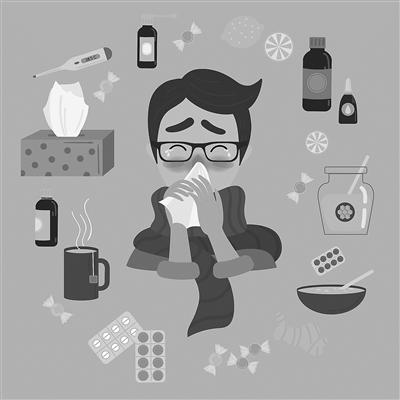Beware of this "variable" disease behind a chronic cough
Recently, the Department of Respiratory Medicine admitted to a patient with a "prolonged cough that did not heal".
The patient, Mr. Wang, is 28 years old this year. He is a small well-known singer. He has good living habits and does not smoke or drink.
A few months ago, after Mr. Wang was cold, he felt a little cough, but he had no phlegm. He didn't care, so he took a little cough medicine casually.
Unexpectedly, the cough has not been healed, and the cough has become worse recently. Especially at night, the neighbors on the whole floor can hear his cough, which seriously affects Mr. Wang's life.
After being admitted to the hospital, Mr. Wang was diagnosed with "cough variant asthma" after a series of examinations.
After learning that he was suffering from "asthma", he was completely blinded, and never expected that the "ordinary cough" in his eyes would eventually become "asthma".
In fact, in daily life, there are many patients with "cough" like Mr. Wang.
It is often treated as a normal cough, which delays the condition.
So what kind of disease is "cough variant asthma", and how should we recognize and prevent it?
Asthma without wheezing or shortness of breath, understand
"Cough variant asthma" is a special type of asthma, which is an airway inflammatory disease.
Such patients do not have common symptoms of asthma such as wheezing and shortness of breath. Cough is the only or main manifestation, so they are often overlooked by people.
This type of disease is mainly manifested as an irritating dry cough (the amount of sputum expected per day is less than 10ml, which is about the volume of 2 bottles of ordinary mineral water), which is mainly characterized by night and early morning coughs.
Coughing takes a long time, and about one-third of patients have an onset of more than 8 weeks.
High airway response is a prerequisite for an asthma attack. High airway response means that the airway will respond faster and more violently to external stimuli.
Well-controlled "cough variant asthma" patients may have no symptoms, but once they are stimulated by colds, cold air, dust, oily smoke, etc., they may trigger airway hyperresponsiveness and induce or aggravate coughing.
When a normal cough is cured, it's wrong
The treatment of "cough variant asthma" cannot be treated as a normal cough.
Related domestic guidelines recommend the use of inhaled corticosteroids combined with bronchodilators for treatment, such as "budesonide/formoterol" and "fluticasone/salmeterol". The recommended treatment time is at least 8 weeks. Some patients require long-term treatment. Medication.
If the patient's symptoms are severe, oral glucocorticoid therapy is recommended when the response to inhaled glucocorticoids is not good.
In addition, leukotriene receptor antagonists, such as "montelukast sodium" can also be used.
This class of drugs can alleviate the symptoms of coughing, improve the quality of life and relieve airway inflammation.
A small number of patients who do not respond to inhaled glucocorticoids may still be effective with this type of drug treatment.
At the same time, Chinese medicine believes that "cough variant asthma" is related to wind evil invading the lungs and loss of lung qi. During treatment, it should be used to relieve wind and lungs, relieve cough and relieve pharynx, and use "Suhuang Cough Capsules" is effective.
In addition to drug treatment, such patients can also take some effective measures to prevent the onset of "cough variant asthma".
First of all, maintain a good life and eating habits: quit smoking and avoid alcohol, ensure adequate nutrition, improve your own immunity, avoid eating spicy and stimulating food, exercise properly, and ensure adequate sleep.
Second, avoid prolonged exposure to inducing factors: such as dust, pollen, oil fume, irritating gases, cold air, and colds.
Finally, early intervention, regular medication, once the diagnosis of "cough variant asthma" should be treated as soon as possible.
Text/Wei Yuanyuan and Li Guangrun (Beijing Shijitan Hospital)

